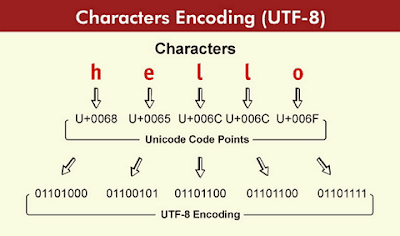

파이썬을 사용하여 JSON 파일의 UTF-8 여부를 체크하고, 만약 UTF-8이 아니라면 인코딩을 변경하는 코드는 다음과 같이 작성할 수 있습니다. 이 코드는 chardet 라이브러리를 사용합니다. 먼저, 해당 라이브러리를 설치해야 합니다.
pip install chardet그런 다음 아래의 파이썬 코드를 사용하세요.
import json
import chardet
def check_and_convert_encoding(file_path, target_encoding='utf-8'):
with open(file_path, 'rb') as file:
raw_data = file.read()
result = chardet.detect(raw_data)
detected_encoding = result['encoding']
if detected_encoding.lower() != target_encoding.lower():
# 인코딩이 UTF-8이 아닌 경우
with open(file_path, 'r', encoding=detected_encoding) as file:
data = json.load(file)
with open(file_path, 'w', encoding=target_encoding) as file:
json.dump(data, file, ensure_ascii=False, indent=2)
print(f'인코딩을 {detected_encoding}에서 {target_encoding}으로 변경하였습니다.')
else:
print('이미 UTF-8로 인코딩되어 있습니다.')
# 파일 경로를 적절히 수정하세요
file_path = 'path/to/your/file.json'
check_and_convert_encoding(file_path)이 코드에서 file_path 변수에는 대상 JSON 파일의 경로를 입력하세요. 코드는 파일의 인코딩을 체크하고, UTF-8이 아니면 해당 인코딩으로 변경한 후에 메시지를 출력합니다.
리눅스 서버에서 주요 보안설정 값을 JSON으로 저장하고, 중앙 서버로 수집하는 과정을 자동화하고, 필요한 경우 UTF-8로 변환하는 방법은 여러가지가 있습니다. 여기서는 SSH를 사용하여 원격 서버에서 정보를 수집하고, 수집된 데이터를 중앙 서버로 전송하며, 필요한 경우 인코딩을 변환하는 간단한 스크립트를 작성하는 방법을 안내하겠습니다.
리눅스 서버 스크립트 (collect_and_store_info.sh)
#!/bin/bash
# 주요 보안설정 값을 JSON으로 저장하는 스크립트
# JSON 파일 경로 및 파일명 지정
JSON_FILE="/path/to/security_settings.json"
# 보안설정 정보 수집 및 JSON 파일 생성
security_info=$(command_to_collect_security_info)
echo "$security_info" > "$JSON_FILE"중앙 서버 스크립트 (collect_from_servers.py)
파이썬 스크립트를 사용하여 여러 리눅스 서버로부터 정보를 수집하고 중앙 서버에 저장합니다. 이 때, 필요에 따라 인코딩을 변환합니다.
import paramiko
import json
import chardet
def collect_from_server(hostname, username, password, remote_script_path):
# SSH 연결 설정
ssh = paramiko.SSHClient()
ssh.set_missing_host_key_policy(paramiko.AutoAddPolicy())
# SSH 연결
ssh.connect(hostname, username=username, password=password)
# 원격 서버 스크립트 실행
stdin, stdout, stderr = ssh.exec_command(f'bash {remote_script_path}')
collected_data = stdout.read().decode()
# 연결 종료
ssh.close()
return collected_data
def save_to_central_server(data, json_file_path, target_encoding='utf-8'):
# 인코딩 체크
result = chardet.detect(data.encode())
detected_encoding = result['encoding']
if detected_encoding.lower() != target_encoding.lower():
# 인코딩이 UTF-8이 아닌 경우 변환
data = data.decode(detected_encoding).encode(target_encoding)
# JSON 파일로 저장
with open(json_file_path, 'w', encoding=target_encoding) as file:
json.dump(json.loads(data), file, ensure_ascii=False, indent=2)
if __name__ == "__main__":
# 각 서버의 정보
server_info_list = [
{'hostname': 'server1.example.com', 'username': 'your_username', 'password': 'your_password'},
{'hostname': 'server2.example.com', 'username': 'your_username', 'password': 'your_password'},
# 추가 서버 정보 추가
]
# 중앙 서버에 저장할 JSON 파일 경로
central_json_file = '/path/to/central/security_settings.json'
for server_info in server_info_list:
collected_data = collect_from_server(server_info['hostname'], server_info['username'], server_info['password'], '/path/to/collect_and_store_info.sh')
save_to_central_server(collected_data, central_json_file)이 코드에서는 paramiko 라이브러리를 사용하여 SSH 연결을 수행하고, 서버에서 스크립트를 실행하여 데이터를 수집합니다. 그리고 중앙 서버에 수집된 데이터를 저장할 때, 필요한 경우 인코딩을 변환합니다. 이는 각 서버의 인코딩이 다를 때 중요합니다.
이 스크립트를 실행하면, 각 리눅스 서버에서 수집한 정보가 중앙 서버에 JSON 파일로 저장됩니다. 이렇게 중앙에서 데이터를 수집하면 서버 간의 인코딩 차이에 대한 문제를 해결할 수 있습니다.


iconv 명령어를 사용하는 것도 유효한 방법이며, 여러 서버에서 데이터를 수집하고 중앙 서버에 저장하는 프로세스에서 iconv를 사용하여 인코딩을 변환할 수 있습니다. iconv는 리눅스와 다양한 유닉스 시스템에서 지원되는 명령어로, 텍스트 파일의 인코딩을 변환하는데 사용됩니다.
아래는 iconv를 사용하여 데이터를 변환하는 방법을 포함한 스크립트의 예제입니다. 이 예제는 중앙 서버에서 서버로부터 수집된 JSON 파일을 읽어들이고, 필요한 경우에 iconv를 사용하여 인코딩을 변환한 후 중앙 서버에 저장하는 방법을 보여줍니다.
#!/bin/bash
# 중앙 서버에서 실행되는 스크립트 (collect_from_servers.sh)
# 각 서버의 정보
server_info_list=("server1" "server2" "server3")
# 중앙 서버에 저장할 JSON 파일 경로
central_json_file="/path/to/central/security_settings.json"
for server in "${server_info_list[@]}"; do
# 서버로부터 데이터 수집
ssh user@$server 'bash /path/to/collect_and_store_info.sh' > "${server}_data.json"
# 필요한 경우 인코딩 변환
iconv -f detected_encoding -t utf-8 "${server}_data.json" > "${server}_utf8_data.json"
# 중앙 서버 파일에 병합 또는 저장
cat "${server}_utf8_data.json" >> "$central_json_file"
done이 스크립트에서 iconv 명령어의 -f 옵션은 원본 파일의 인코딩을 지정하고, -t 옵션은 대상 파일의 인코딩을 지정합니다. 위의 스크립트에서는 detected_encoding에 해당 서버에서 수집한 데이터의 실제 인코딩을 설정해야 합니다. 이 부분은 chardet 또는 다른 방법을 사용하여 실제로 수집된 데이터의 인코딩을 검출하여 설정할 수 있습니다.
두 가지 방법 중 어떤 것을 선택할지는 상황에 따라 다를 수 있습니다. iconv 명령어는 명령행 도구로서 간단하게 사용할 수 있지만, 파이썬 스크립트를 사용하는 경우 더 많은 유연성을 제공할 수 있습니다.




댓글